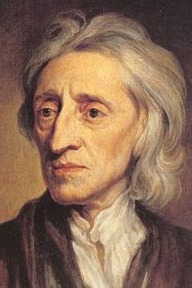
Personal info
Known for
Ultimate Talent
Gender
Male
Birthday
29 August
Location
England, United Kingdom
Edit pageJohn Locke
Biography
John Locke was an English philosopher and physician whose ideas became the cornerstone of modern political thought and empiricism. Often called the “Father of Liberalism,” Locke’s writings on government, human understanding, and individual rights deeply influenced the Enlightenment and the formation of democratic societies.
Early Life and Education
John Locke was born on August 29, 1632, in Wrington, Somerset, England. His father was a lawyer and served as a captain in the English Civil War. Locke received his early education at Westminster School and later attended Christ Church, Oxford, where he studied philosophy, medicine, and the natural sciences.
Although he found the traditional scholastic teaching of the time unsatisfying, Locke developed a deep interest in the emerging scientific ideas of thinkers like Galileo and Newton. This exposure shaped his belief in empiricism — the idea that knowledge comes from experience and observation rather than innate ideas.
Career and Major Works
After completing his studies, Locke worked as a physician and academic. His medical background and association with Robert Boyle, a leading scientist of the era, reinforced his belief in observation and reason as the basis for understanding the world.
Locke’s most significant philosophical work, “An Essay Concerning Human Understanding” (1690), explored how humans acquire knowledge. He argued that the mind at birth is a “tabula rasa” — a blank slate — and that all knowledge comes from sensory experience and reflection. This idea laid the foundation for modern psychology and education.
In political philosophy, Locke’s “Two Treatises of Government” (1689) became a landmark text. He rejected the notion of absolute monarchy and proposed that government should be based on the consent of the governed. He emphasized the natural rights of individuals — life, liberty, and property — which governments must protect. These ideas later inspired the American Declaration of Independence and many democratic constitutions worldwide.
Locke also wrote on religious tolerance, arguing that faith should be a matter of personal belief and not enforced by the state.
Death and Legacy
John Locke retired to the countryside in his later years, where he continued to write and study. He died on October 28, 1704, in Essex, England.
Locke’s philosophy shaped the Enlightenment’s focus on reason, liberty, and individual rights. His influence is evident in modern democracy, education, and constitutional law. He remains one of history’s greatest champions of freedom and rational thought.
Conclusion
John Locke’s life and works reflect a profound belief in human reason and the power of experience. Through his advocacy for knowledge, equality, and government by consent, he helped lay the foundations of modern democracy and scientific inquiry. His legacy endures as a guiding light for liberty and human progress.